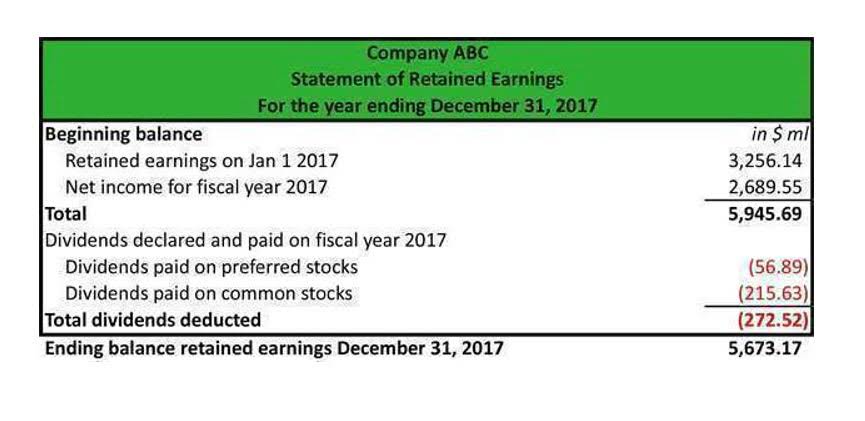
For instance, a CFA is skilled in investment analysis and portfolio management, making them valuable for individuals with significant investments. A bachelor’s degree in accounting or a related field is typically the minimum requirement. However, there are drawbacks as well, such as the cost of services, dependence on the accountant’s expertise and integrity, and the potential for human errors. Accountants aid in decision-making by providing well-analyzed financial data, helping to formulate strategic business plans. Auditors can be internal or external, and they review financial statements for accuracy and regulatory compliance.
- A bachelor’s degree in accounting or a related field is typically the minimum requirement for an accountant.
- Even when a business has a private accountant, its financial records may be externally audited by a certified public accountant if required.
- Look for someone knowledgeable in the software you plan to use.
- However, according to the Bureau of Labor Statistics, the median annual salary for Accountants and auditors was approximately $77,250 in May 2020.
- Managing personal finances can feel overwhelming, especially when juggling multiple income streams, investments, and tax obligations.
- CPAs are recognized as experts in financial reporting, auditing, taxation, and business consulting, making them essential in both the corporate world and public accounting firms.
Public Accounting Firms
- They bring expertise and personalized attention to your financial situation.
- It’s essential to weigh these against the benefits before making a decision.
- Strong understanding of financial regulations, including GAAP (Generally Accepted Accounting Principles) and tax laws.
- Accountants can work in public accounting firms, private industry, government, or non-profit organizations.
- They also develop tax strategies and offer financial guidance all year.
Accountants may charge hourly, offer fixed fees for specific services, or work on a retainer basis for ongoing support. In the UK, the basic educational requirement for becoming an accountant is a bachelor’s degree or master’s degree in accounting. Following their accounting degree, accountants can specialise or apply for further qualifications through one of the UK’s chartered accountancy bodies. We’ll explore some of the basic tasks of accountants, as well as the different types of accountants and the skills they require. Then we’ll look at current accounting trends to see how new technologies have influenced the accounting process. They look at your current finances, find ways to what are retained earnings improve, and set goals.

Do I Need Personal Accountants for My Finances?

Working with a personal accountant is crucial for financial guidance. They offer tailored advice based on your financial situation. They help track finances, set budgets, and make informed decisions. A personal accountant may be helpful if you’re an entrepreneur or you have a lot of personal financial issues to deal with. Insurance Accounting However, if going the DIY accounting route is more your style, you could enroll in a course to learn more about money management, do research online, or use a money-management app.
Does the Personal Accountant Need to Be Certified?
It’s not often that people find themselves in a situation where they have more money than they thought they would. Join professional organizations like the American Institute of Certified Public Accountants (AICPA) to access resources, network with other professionals, and stay updated on industry trends. These opportunities can help you build your network, develop your skills, and gain insight into the day-to-day responsibilities of an Accountant. Pursue a bachelor’s degree in accounting or a related field from a reputable university. Accountants who are proficient in data analytics, artificial intelligence, and cloud accounting will be in high demand.

Meet Top Certified Financial Advisors Near You
- The types of records to retain depend on the services provided.
- People who have multiple sources of income, several businesses, or demanding jobs already have enough on their plates.
- For businesses with more than one employee, an accountant with small business expertise can help with everything from determining the right business structure to filing taxes.
- Join professional organizations like the American Institute of Certified Public Accountants (AICPA) to access resources, network with other professionals, and stay updated on industry trends.
- But what they don’t consider is the time, energy, and, ultimately, funds, they’ll save by hiring one.
For businesses with more than one personal accountant employee, an accountant with small business expertise can help with everything from determining the right business structure to filing taxes. Accountants can be experts in money-management topics across the board, including taxes and helping navigate complicated financial situations. • Different types of accountants, such as CPAs, accountants, and bookkeepers, offer varying services and expertise. Similarly, your accountant can talk to creditors, the IRS, credit card companies and even banks, and negotiate for a payment arrangement on your behalf.
- Accountants may specialize in areas such as auditing, tax preparation, management accounting, or forensic accounting, depending on their expertise and professional interests.
- Individuals are not required by law to keep financial books and records (businesses are), but not doing this can be a costly mistake from a financial and tax perspective.
- Proper records support tax compliance and informed decision-making.
- Your information is kept secure and not shared unless you specify.
- From sales revenue, expenses, and payroll to investments, accountants are proficient in collecting, organizing, and interpreting this information.
- Let us say that you go out and unintentionally splash $3,000.

The knowledge, skills, and ethical standards that come with the CPA designation provide a solid foundation for long-term career growth and financial expertise. Many individuals and businesses turn to CPAs for tax advisory services, as they provide valuable insights on minimizing tax risks and maximizing financial efficiency. If there are only three types of people who need a personal accountant, then it’s the wealthy, the self-employed, and the ones with a foreign source of income. Furthermore, those who are already in debt might think that hiring an accountant will spread them even thinner, but that’s not necessarily the case.

